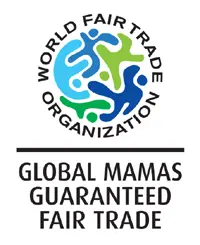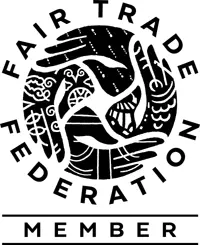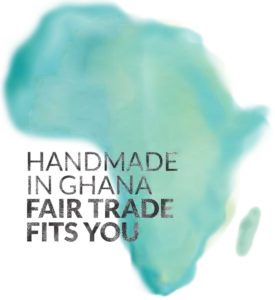Water hyacinth, a profuse natural resource that we are using as the base material for our new Fibers of Change collection, is known around the world for it’s aggressive growth. Certain species of hyacinth are known to double their size in just two weeks – meaning an initial ten plants may multiply into over 600 specimens in a three month span. This rapid growth clogs waterways while a well-developed root system readily absorbs oxygen and available nutrients, depleting resources needed for native plants, fish, and other organisms to thrive. This combination of factors makes the water hyacinth a threat to biodiversity, water quality, water transportation, and human health wherever it’s found.
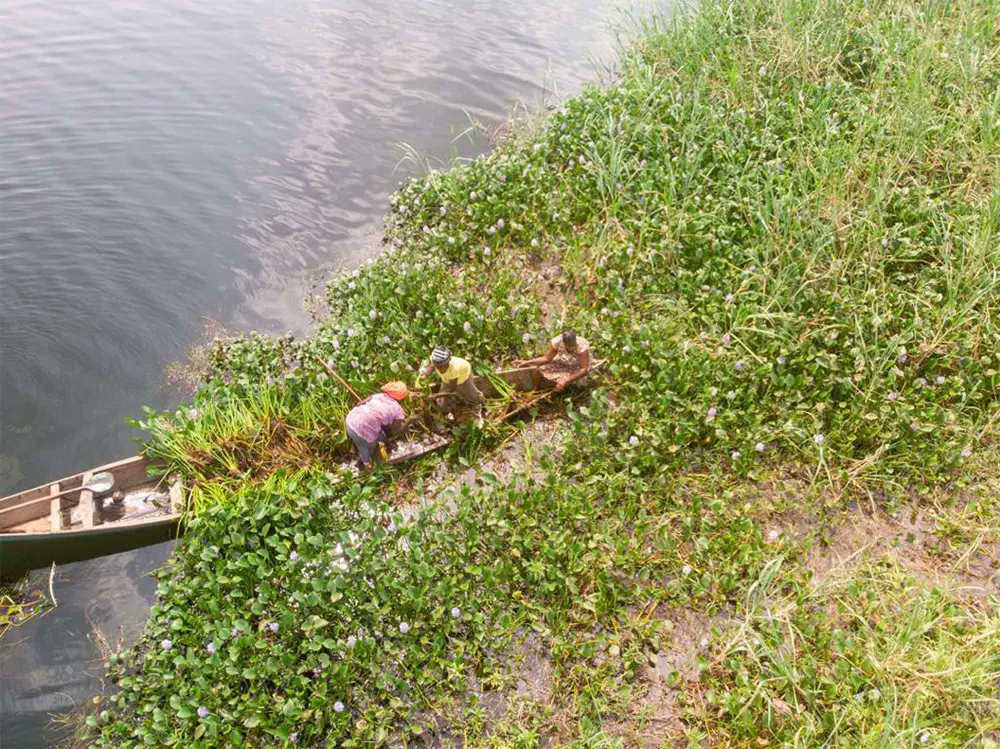
Originally from the Amazon Basin, water hyacinth may now be found in waterways around the world. Spread has occurred in part due to its deceptively pretty blossoms that are found desirable as ornamental pond plants. Once established in a wetland or water body such as Ghana’s Volta River, the weed can spread through wind propulsion of floating plants (or plant fragments), through water currents, and on the feathers and feet of local species and migratory waterbirds. (source) The construction of the Akosombo Dam, located just north of the area where we are sourcing the weeds, has created favorable conditions for water hyacinth colonies to flourish. Every time the Dam opens more weeds float downriver to our partner communities, meaning mechanical or chemical means to eliminate the plant are not a viable long-term solution. Under the Fibers of Change* Project Global Mamas is working with communities in the Lower Volta River to find truly sustainable ways to protect the biodiversity of the river while providing fairly paid livelihoods for community members affected by the water hyacinth infestation.
*This project is funded by USAID through the West Africa Biodiversity and Climate Change program (WA BiCC)
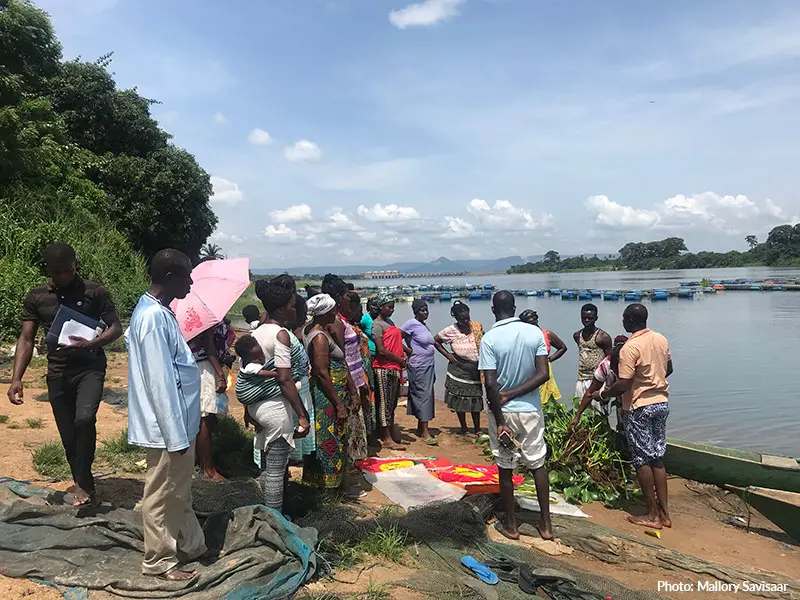
Harvesting the water hyacinth by pulling it from the water whole has been recommended as the most sustainable way to mitigate its spread. Removing the plant by hand prevents secondary pollution caused by using chemicals or pesticides, and it also creates sustainable livelihoods for community members as they harvest and sell the hyacinth to our handcrafting team in Akuse.
It turns out the water hyacinth plant is rich in fiber which makes it useful for both papermaking and weaving. To create woven goods such as ropes, baskets, and bags Global Mamas weavers take fibers harvested from the river and dry them in the sun. Global Mamas papermakers use the plant fibers while they are still fresh, grinding and crushing them into a pulp. In combination with other materials such as the batik textiles and recycled glass beads already being crafted by Global Mamas artisans, our team in Akuse has been developing eco-friendly water hyacinth products since Fall 2019. Various colorways of the innovative products shown below are available online now.
We hope you love this unique and eco-friendly line as much as we do!


